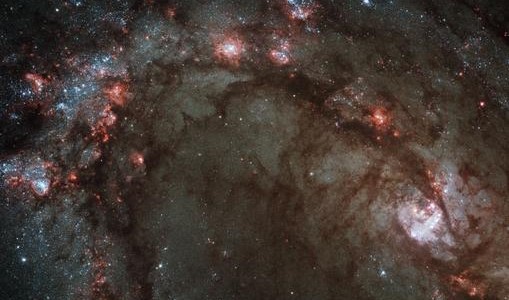
ΑΙhub.org
A deep learning framework for analysis of astronomical images

Researchers have developed a model for generating pixel-level morphological classifications of astronomical sources. Morpheus can analyze astronomical image data pixel-by-pixel to identify and classify all of the galaxies and stars in large data sets from astronomy surveys.
Morphology represents the structural end state of the galaxy formation process, and astronomers have long connected the morphological character of galaxies to the physics of their formation. Therefore, being able to measure such morphologies is a very important task in observational astronomy.
Characterizing large numbers of galaxies with descriptive classifications simultaneously requires the following:
- Expertise – domain knowledge of galaxy morphology
- Efficiency – the capability to evaluate quickly each galaxy
- Scalability – a capacity to work on significant galaxy populations
- Preprocessing – some analysis of the data to identify galaxy candidates for classification
- Data model – images in a format that enables the characteristic structures to be recognized
- Accuracy – reliable classifications
There are a number of models that have addressed many of these requirements in complimentary ways. For example, the citizen science Galaxy Zoo project where members of the public help in the classification of images. Others have used deep-learning methods to catalogue morphologies.
Machine learning techniques provide a powerful toolkit to help address all of these requirements in one model. In this work the researchers extend previous efforts by applying semantic segmentation using a neural network inspired by the U-Net architecture (essentially a convolutional neural network). This allows them to deliver pixel-level separation between sources and the background sky, and provides an automated classification of the source pixels. Within the same framework, Morpheus enables further classification of the source pixels into additional “classes”: spheroid, disk, irregular, point source/compact, and background. The team evaluated the performance of Morpheus on data from the Hubble Space Telescope.
You can watch Morpheus in action in this video produced by the researchers:
The code and datasets are open-source and can be accessed here. Tutorials for using the Morpheus deep learning framework have been created and publicly released as Jupyter notebooks.
Read the research article
Morpheus: A Deep Learning Framework For Pixel-Level Analysis of Astronomical Image Data
Ryan Hausen and Brant E. Robertson
The Astrophysical Journal
The paper is also posted on arXiv.
The Morpheus GitHub page.










